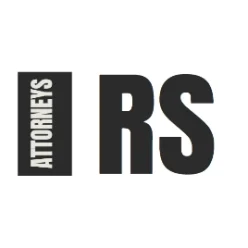Yes, You Can Recover From Bankruptcy
There is no question that filing for personal bankruptcy will ding your credit score. For the first couple of years after your bankruptcy has been discharged, you can expect getting any kind of a loan or credit card to be tough. But if you apply the principles learned in your required credit counseling and financial management class, you will find your credit rating improving relatively quickly.
We invite you to learn more about rebuilding your credit after filing for Chapter 7 or Chapter 13 bankruptcy. Contact a bankruptcy attorney or call us for a free initial consultation. We will treat you with respect and give you an honest evaluation of your circumstances.
Some Effective Ways to Rebuild Credit and Improve Credit Score
Despite the impact that bankruptcy may have on your credit, there are ways for you to help rebuild your credit, even while you are going through the bankruptcy process. Some simple steps you can take to rebuild credit include:
![]() FIGHT FOR YOUR CREDIT: If you get denied, find out why and fight to get your application approved. Every loan, no matter how small is a step in the right direction — but only if you make timely payments.
FIGHT FOR YOUR CREDIT: If you get denied, find out why and fight to get your application approved. Every loan, no matter how small is a step in the right direction — but only if you make timely payments.
![]() EXPLAIN YOUR CIRCUMSTANCES: If there were special circumstances leading to your bankruptcy, such as a serious illness, write a letter to the credit reporting agencies. In addition, attach the letter to your loan applications.
EXPLAIN YOUR CIRCUMSTANCES: If there were special circumstances leading to your bankruptcy, such as a serious illness, write a letter to the credit reporting agencies. In addition, attach the letter to your loan applications.
![]() MAKE ALL PAYMENTS ON TIME: Every late payment reaffirms your creditors’ belief that you are a bad credit risk. Set up a regular payment plan for your mortgage and car payment and STICK TO IT.
MAKE ALL PAYMENTS ON TIME: Every late payment reaffirms your creditors’ belief that you are a bad credit risk. Set up a regular payment plan for your mortgage and car payment and STICK TO IT.
Get a cosigner: If you can find someone willing to cosign a loan, banks are generally willing to extend credit more quickly. You will still be the primary account holder. Make your payments on time and keep the bank — and your cosigner — off your back.
![]() APPLY FOR A SECURED CREDIT CARD: A secured credit card means that you deposit a certain amount of money into a special account. Your credit limit will be based on the amount you deposit. Sure, it’s your own money, but it will give you an opportunity to show other creditors that you are responsible and can make payments on time.
APPLY FOR A SECURED CREDIT CARD: A secured credit card means that you deposit a certain amount of money into a special account. Your credit limit will be based on the amount you deposit. Sure, it’s your own money, but it will give you an opportunity to show other creditors that you are responsible and can make payments on time.
![]() USE SOUND FINANCIAL MANAGEMENT: You may find some creditors willing to loan you money immediately after your bankruptcy. Of course, the interest rates, penalties and fees will be very high and can lead to the same debt problems. Don’t fall into the same trap. Use common sense about credit and financial management.
USE SOUND FINANCIAL MANAGEMENT: You may find some creditors willing to loan you money immediately after your bankruptcy. Of course, the interest rates, penalties and fees will be very high and can lead to the same debt problems. Don’t fall into the same trap. Use common sense about credit and financial management.
![]() TIMELY PAYMENTS ARE OFTEN BETTER THAN LUM-SUM PAYOFFS: When you get a loan, you don’t have to rebuild your credit rating all at once by making a single, lump-sum payoff. Rebuilding your credit will take time. Many creditors would rather see a credit report that reflects timely payments over a specified repayment period.
TIMELY PAYMENTS ARE OFTEN BETTER THAN LUM-SUM PAYOFFS: When you get a loan, you don’t have to rebuild your credit rating all at once by making a single, lump-sum payoff. Rebuilding your credit will take time. Many creditors would rather see a credit report that reflects timely payments over a specified repayment period.
Whether you are filing for Chapter 7 or Chapter 13 bankruptcy, the above suggestions will help get you on the right track to repairing your damaged credit and improving your credit scores.
Call a Northern Kentucky Secured Credit Card Attorney for a Free Initial Consultation
If you are feeling overwhelmed by debt and are considering filing for bankruptcy, contact a bankruptcy attorney or call us for a free initial consultation. We work alongside our clients and provide a personal level of service that you will not find at most law firms.
We are a debt relief agency. We help people file for bankruptcy relief under the Bankruptcy Code.
